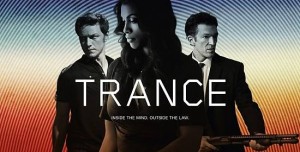Yesterday
Posted on June 27, 2019 at 5:30 pm
C| Lowest Recommended Age: | Middle School |
| MPAA Rating: | Rated PG-13 for suggestive content and language |
| Profanity: | Some strong and crude language |
| Alcohol/ Drugs: | Drinking and tipsiness |
| Violence/ Scariness: | Bicycle accident, some graphic injuries |
| Diversity Issues: | None |
| Date Released to Theaters: | June 28, 2019 |
| Date Released to DVD: | September 23, 2019 |

Jack (Himesh Patel) has been trying to make it as a musician for ten years in his small home town on the English coast. His best friend Ellie (Lily James) believes in him and acts as his manager when she isn’t teaching high school math. But he is not making much progress. He is ready to give up when a mysterious worldwide blackout shuts down all power for twelve seconds and he is hit by a bus as he is bicycling home. During that twelve seconds, somehow the world is rebooted in a slightly different form. The Beatles never existed. Some other random cultural touchstones are missing as well, including Coke. Jack, just out of the hospital and still missing two front teeth, thanks his friends for the gift of a new guitar by playing “Yesterday.” Which they have never heard before and think he wrote. And of course they love it, though one of them says it’s not up to the level of Coldplay’s “Fix You.”
Jack starts playing Beatles songs and people like them. Ed Sheeran, charmingly playing a version of himself, invites him to tour as his opening act. In Moscow, Jack plays “Back in the USSR,” which is a huge success with the crowd, even though most of them were not born when their country was the USSR. Ed Sheeran challenges Jack to a songwriting competition, and has to admit defeat. “You’re Mozart and I’m Salieri,” he says.
An agent named Debra (Kate McKinnon in a sizzling performance) arrives to offer Jack “the poison chalice” of fame and money. Jack, who has waited so long for success as a musician and performer, says yes.
This is very much a lesser work from Richard Curtis, the man who wrote “Four Weddings and a Funeral,” “Notting Hill,” “Pirate Radio,” and “Love Actually.” There are lovely moments — the first recording session, the fun of the astonishment when people are stunned by songs we all know so well they are a part of us, the fantasy of being adored by worldwide audiences, the hilariousness of playing one of the greatest songs of all time for your parents and their not having a clue. And it is intriguing to see a person of color appropriate white musicians’ work for a change. But the friend zone/romance storyline and a bad swerve at the end show that even the world’s greatest songs cannot prop up a script that outstays its welcome. The songs are all sublime, but these new versions do not add anything special.
George Martin, who worked more closely with the Beatles than anyone else, said that their charm was as important to their early success as their music. That early success gave them a chance to develop and grow and take huge risks and reflect on their experiences, all of which became a part of their endlessly innovative and ground-breaking work.
To have even some of their greatest hits all thrown into what is supposed to be one performer’s series of songs, unrelated to what is going on in the lives of the songwriter or in the world, and, to adapt the title of an ex-Beatle song, imagine there’s no Beatles, gives the music an unearned power, relying on our love for the songs and what they mean in our lives, whether we first heard them in kindergarten, at spin class, or as they first came out. That makes this story empty at its Apple Corps.
Parents should know that this movie includes sexual references and situations and some strong and crude language.
Family discussion: Why did Deborah call what she was offering the poison chalice? What did Jack learn from his meeting with John?
If you like this, try: “Begin Again” and “Across the Universe” and the Beatles movies




